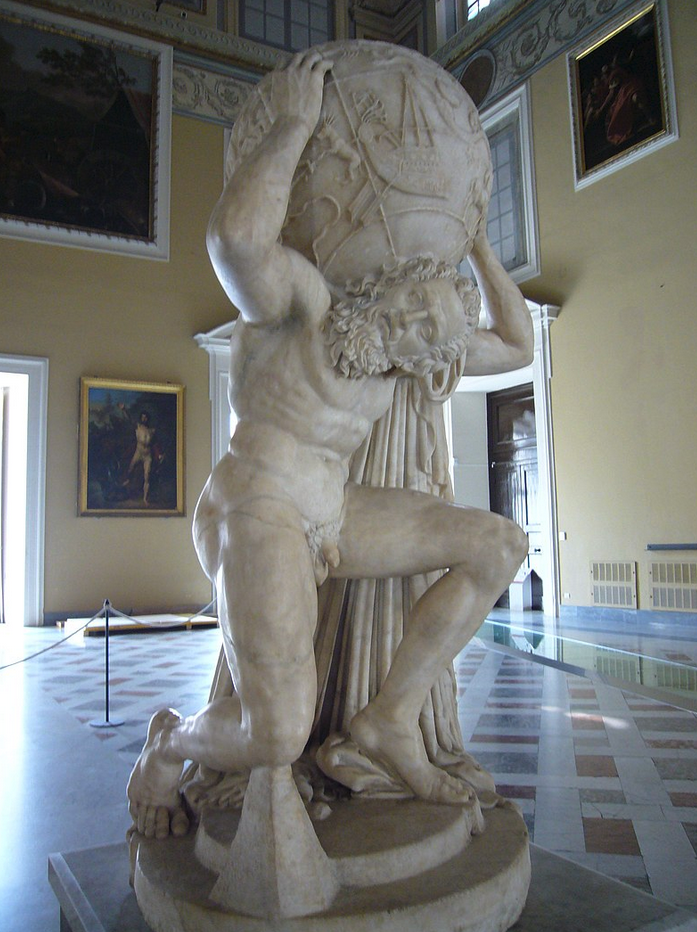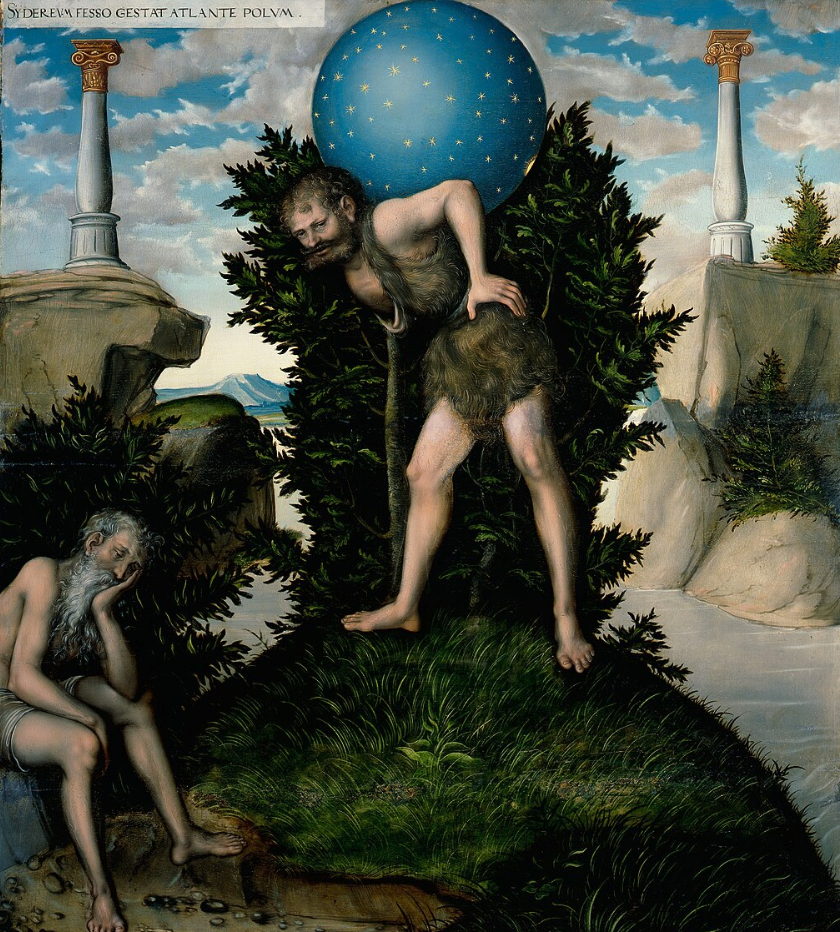Meaning of ATLAS
Science / Abbriviation.
The A3 (Tsuchinshan–ATLAS) comet was jointly discovered by the Tsuchinshan Observatory in China and the Asteroid Terrestrial-impact Last Alert System (ATLAS) in Hawaii. ATLAS, a NASA-funded project, is designed to detect asteroids on a collision course with Earth by scanning the sky for moving objects. The system, which began operation in 2015, consists of several telescopes stationed in Hawaii, Chile, and South Africa. The ATLAS system contributed to the discovery of Comet A3 through its regular sky monitoring, alongside the Tsuchinshan Observatory’s efforts, leading to the comet being named after both observatories.
Etymology of the word Atlas
The etymology of the name Atlas is uncertain. Virgil enjoyed translating Greek names by combining them with adjectives that clarified their meanings; for Atlas, his adjective was durus, meaning "hard" or "enduring." This led George Doig to suggest that Virgil was aware of the Greek word τλῆναι, meaning "to endure." Doig also proposed that Virgil might have known about Strabo’s observation that the native North African name for the Atlas Mountains was Douris. Since the Atlas Mountains are located in a region inhabited by Berbers, some have suggested that the name could be derived from the Berber word ádrār, meaning "mountain."
Linguists traditionally trace the Ancient Greek word Ἄτλας (genitive: Ἄτλαντος) to the copulative prefix α- and the Proto-Indo-European root telh₂- meaning "to uphold" or "support," which is also the root of the Greek word τλῆναι and was later modified into an nt-stem. However, Robert S. P. Beekes argues that it is unlikely for such an ancient Titan to have an Indo-European name, proposing instead that the word has a Pre-Greek origin, as words from this substratum often end in -ant.
Sources: https://en.wikipedia.org/wiki/Atlas_(mythology) https://www.etymonline.com/word/Atlas#etymonline_v_18018
Mythology

War and punishment
Atlas and his brother Menoetius supported the Titans in their war against the Olympian gods, known as the Titanomachy. After the Titans were defeated, many of them, including Menoetius, were imprisoned in Tartarus. However, Zeus sentenced Atlas to stand at the western edge of the world, tasked with holding up the sky on his shoulders. This earned him the name Atlas Telamon, meaning "enduring Atlas," and he became a counterpart to Coeus, who symbolized the celestial axis around which the heavens rotate.
A common modern misconception is that Atlas was condemned to hold the Earth on his shoulders. However, Classical art typically depicts him supporting the celestial spheres, not the terrestrial globe. The confusion may have been encouraged by the solid marble globe held by the famous Farnese Atlas statue, and later reinforced in the 16th century when the word "atlas" began to be used for collections of maps of the Earth.
Encounter with Perseus
The Greek poet Polyidus, around 398 BC, tells the story of Atlas, depicted as a shepherd, encountering Perseus, who ultimately turns him to stone. Ovid later expands on this account, weaving it into the myth of Heracles. In Ovid's version, Atlas is no longer a shepherd but a king. Perseus arrives in Atlas's kingdom, seeking shelter and identifying himself as a son of Zeus. However, Atlas, mindful of a prophecy foretelling that a son of Zeus would steal his golden apples, denies Perseus hospitality. In retaliation, Perseus transforms Atlas not just into stone but into an entire mountain range, with his head becoming the peak, his shoulders forming ridges, and his hair turning into forests. The prophecy in fact referred not to Perseus but to Heracles, another son of Zeus and Perseus’s great-grandson, who would later steal the golden apples.
Encounter with Heracles

One of the Twelve Labors of Heracles involved retrieving golden apples from Hera’s garden, which were tended by Atlas’s daughters, the Hesperides (also called the Atlantides), and guarded by the dragon Ladon. Heracles approached Atlas, offering to hold up the heavens while Atlas fetched the apples from his daughters.
Upon returning with the apples, Atlas tried to deceive Heracles by offering to deliver them himself, knowing that anyone who willingly took the burden of the sky must carry it forever, or until someone else relieved them. Sensing Atlas’s intentions, Heracles pretended to agree but asked Atlas to take back the sky for a moment so he could adjust his cloak for padding. Once Atlas resumed holding the heavens, Heracles quickly grabbed the apples and fled.
In some versions of the myth, Heracles instead built the two great Pillars of Hercules to permanently hold the sky apart from the earth, freeing Atlas in a similar manner to how he liberated Prometheus.
Other mythological characters named Atlas
Besides the Titan, there are other mythological characters who were also called Atlas:
King of Atlantis
According to Plato, the first king of Atlantis was also named Atlas, though this Atlas was the son of Poseidon and the mortal woman Cleito. Eusebius and Diodorus also provide an account of Atlas in the context of Atlantis. In their versions, Atlas's father was Uranus, and his mother was Gaia. His grandfather was Elium, the "King of Phoenicia," who lived in Byblos with his wife, Beruth. Atlas was raised by his sister, Basilia.
King of Mauretania
Atlas was also a legendary king of Mauretania, an ancient region that roughly corresponds to modern-day Morocco and Algeria, home to the Mauri people. In the 16th century, cartographer Gerardus Mercator compiled the first collection of maps to be called an "Atlas" and dedicated his work to the "King of Mauretania."
Source: https://en.wikipedia.org/wiki/Atlas_(mythology)